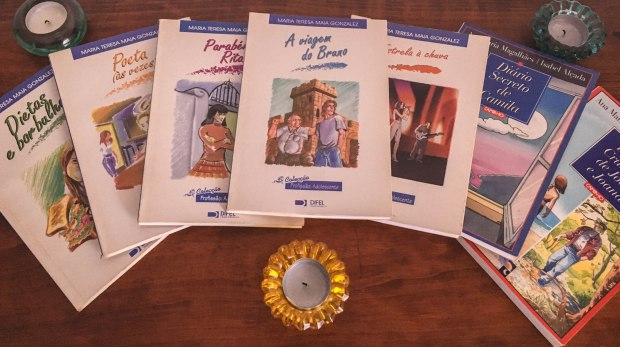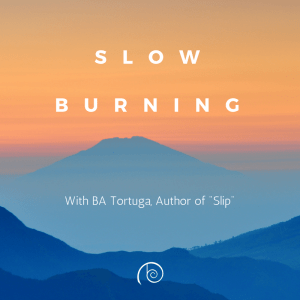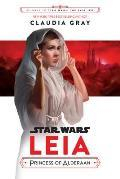 1. I finished Leia: Princess of Alderaan by Claudia Gray, and I liked it enough to set up a mental flag to read more of her writing. This is mainly due to the reference to The Left Hand of Darkness by Ursula K. Le Guin that caught me by surprise, made me laugh aloud, and led me to investigate the availability of more Claudia Gray ebooks through the public library (which turns out, happily, to be most of her titles). The UKL reference, plus the line in her biography that says she is always up for a Jane Austen trivia challenge. That the book ended completely as I expected is not a mark against it when you want to read something about Star Wars.
1. I finished Leia: Princess of Alderaan by Claudia Gray, and I liked it enough to set up a mental flag to read more of her writing. This is mainly due to the reference to The Left Hand of Darkness by Ursula K. Le Guin that caught me by surprise, made me laugh aloud, and led me to investigate the availability of more Claudia Gray ebooks through the public library (which turns out, happily, to be most of her titles). The UKL reference, plus the line in her biography that says she is always up for a Jane Austen trivia challenge. That the book ended completely as I expected is not a mark against it when you want to read something about Star Wars.
 2. Having read all of Ann Patchett‘s novels, and counting Run among my all-time top ten, I was pleased to read The Getaway Car, Patchett’s long essay about writing. Fully aware that she is preaching to the choir in that she is addressing readers and writers and lovers of books, she explains her experience with writing, inspiration, drafts, publishing, and the lifelong practice of putting words to paper. She says writing down the stories in her head is like trying to collect a gorgeous butterfly by running over it with a car and sticking it with pins. Forgiving herself for what she does to her novels is one of the hardest parts of writing for her. If Patchett thinks of her novels as crushed butterflies, I wonder what they looked like before she started writing them! But I understand what she means, that trying to siphon an idea onto the page destroys it on at least one level. This is meant to be inspiring–and is. But she explains it better than I do, so you’d do much better to read the essay itself.
2. Having read all of Ann Patchett‘s novels, and counting Run among my all-time top ten, I was pleased to read The Getaway Car, Patchett’s long essay about writing. Fully aware that she is preaching to the choir in that she is addressing readers and writers and lovers of books, she explains her experience with writing, inspiration, drafts, publishing, and the lifelong practice of putting words to paper. She says writing down the stories in her head is like trying to collect a gorgeous butterfly by running over it with a car and sticking it with pins. Forgiving herself for what she does to her novels is one of the hardest parts of writing for her. If Patchett thinks of her novels as crushed butterflies, I wonder what they looked like before she started writing them! But I understand what she means, that trying to siphon an idea onto the page destroys it on at least one level. This is meant to be inspiring–and is. But she explains it better than I do, so you’d do much better to read the essay itself.
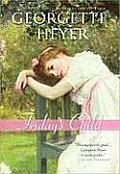 3. I adore Georgette Heyer, because the Publisher’s Weekly blurb is correct that reading her is the next best thing to reading Jane Austen. I began Friday’s Child feeling somewhat apprehensive that the volume appeared to be lacking the character type with whom I most identify in Heyer’s books, the wry or sarcastic one, and I felt the book suffered for having such a cadre of vacuous minds as the protagonists: the rakish Sherry (Viscount Sherinford), Hero Wantage, and Sherry’s three bachelor friends and his ex. But as I continued reading, I found more and more to delight. Sherry’s transformation is an utter joy, by which I mean it had me laughing. And Sherry is right, Hero does get herself into every imaginable scrape ever, but she always means well. In a blog or guest post or author’s note or something of Sherwood Smith was the first place I encountered a Heyer recommendation, and for that I am her obedient, etc.
3. I adore Georgette Heyer, because the Publisher’s Weekly blurb is correct that reading her is the next best thing to reading Jane Austen. I began Friday’s Child feeling somewhat apprehensive that the volume appeared to be lacking the character type with whom I most identify in Heyer’s books, the wry or sarcastic one, and I felt the book suffered for having such a cadre of vacuous minds as the protagonists: the rakish Sherry (Viscount Sherinford), Hero Wantage, and Sherry’s three bachelor friends and his ex. But as I continued reading, I found more and more to delight. Sherry’s transformation is an utter joy, by which I mean it had me laughing. And Sherry is right, Hero does get herself into every imaginable scrape ever, but she always means well. In a blog or guest post or author’s note or something of Sherwood Smith was the first place I encountered a Heyer recommendation, and for that I am her obedient, etc.
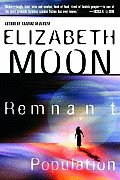 4. I’m in-progress with Remnant Population by Elizabeth Moon and it is exactly my kind of page-turner. The protagonist, Ofelia, who is between 70 and 80, decides to hide to stay behind when her colony is moved off-planet after four decades of residence. Of course, in science fiction, if you think you’re alone, you aren’t. It’s one of the best first contact books I’ve read–but I will say no more at this point, except that I’m enjoying it leaps and bounds above The Speed of Dark, the only other title by Moon I’ve read.
4. I’m in-progress with Remnant Population by Elizabeth Moon and it is exactly my kind of page-turner. The protagonist, Ofelia, who is between 70 and 80, decides to hide to stay behind when her colony is moved off-planet after four decades of residence. Of course, in science fiction, if you think you’re alone, you aren’t. It’s one of the best first contact books I’ve read–but I will say no more at this point, except that I’m enjoying it leaps and bounds above The Speed of Dark, the only other title by Moon I’ve read.
5. Sundry: I glanced into but decided not to read Autonomous by Annalee Newitz and Flora Segunda by Ysabeau Wilce because they did not grab me in the first 10 pages. I am also keeping on with BASFF 2016 between books, without liking many of the stories.
Share this:



